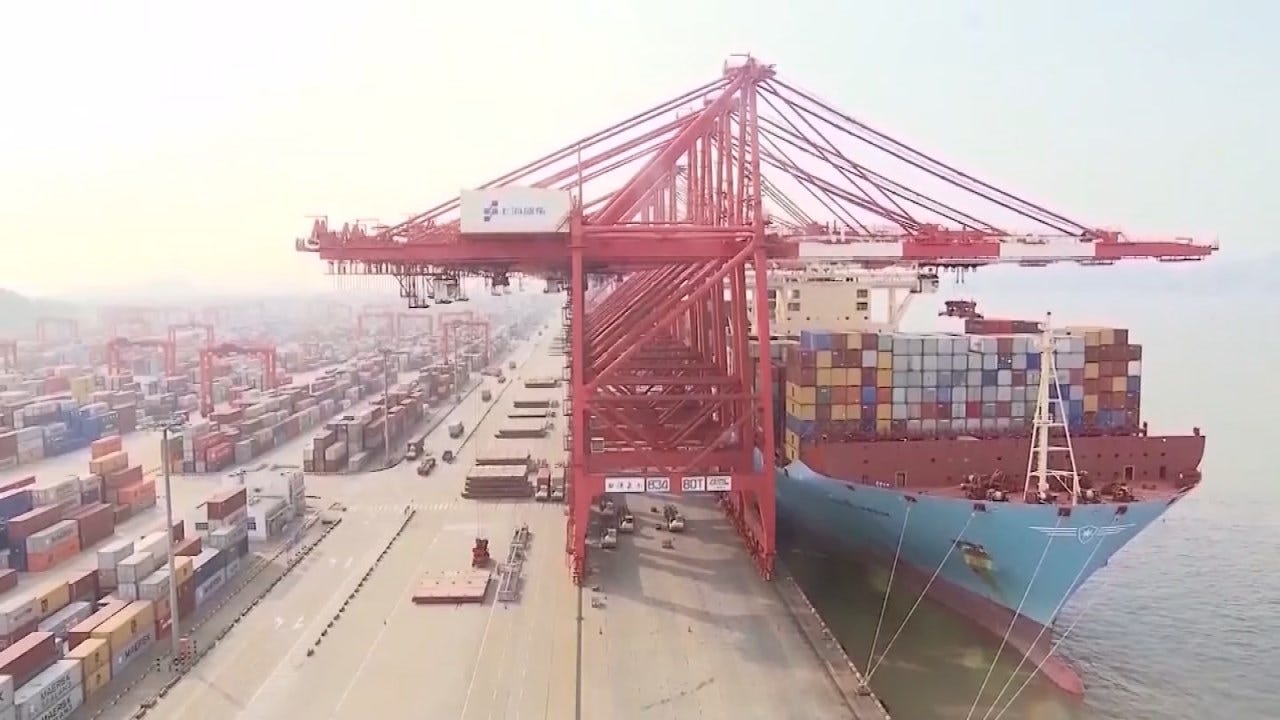Trump Trade War With China Costs 300,000 U.S. Jobs, Moody's Estimates
Although U.S. unemployment may be at its lowest level in nearly 50 years, the jobless rate would be even lower if not for the U.S.-China trade war, Moody's Analytics said in a recent analysis.Friday, September 13th 2019, 4:27 am
- Moody's Analytics estimates that the Trump administration's trade war with China has resulted in 300,000 fewer jobs being created in the U.S.
- That figure could rise to 450,000 by year-end if the dispute continues, according to the economic research firm.
- Economist Mark Zandi said the two countries are playing a "dangerous game of economic chicken."
Although U.S. unemployment may be at its lowest level in nearly 50 years, the jobless rate would be even lower if not for the U.S.-China trade war, Moody's Analytics said in a recent analysis.
The White House's imposition of tariffs on hundreds of billions worth of Chinese imports has resulted in 300,000 fewer jobs being created and reduced U.S. gross domestic product by an estimated 0.3%, Moody's Analytics' chief economist Mark Zandi said in the report.
That estimate is based on the difference between actual nonfarm employment and projections of what employment would have been as of June 30 if not for the U.S.-China trade war.
If the U.S. tariffs stay in place at current and intended levels, some 450,000 fewer jobs will be created by year-end — that figure would rise to 900,000 if the trade dispute carries on through next year, Zandi told CBS MoneyWatch in an email.
Trump and China Premier Xi "have embarked on a dangerous game of economic chicken," Zandi wrote in the report. "Both claim that their economies are strong enough to withstand the trade turbulence, but they are pursuing policy stimulus to offset the costs of the war."
More than $100 billion in new American tariffs on Chinese goods took effect this week, with another $200 billion set to hit in December. By year's end, nearly every good imported from China will be taxed by the U.S. government — about $550 billion worth of total goods — paid for by American companies. Mr. Trump hiked the tariffs last month after China raised duties on $75 billion in U.S. goods amid an escalating trade war between the world's two biggest economies.
U.S. employers hired 130,000 workers in August amid signs of slowing job-creation, leaving the jobless rate at 3.7%.
Tariffs on imported Chinese goods are paid for by U.S. companies, not China as President Donald Trump has erroneously claimed. In July alone, tariffs cost American businesses $6.8 billion, according to figures released Wednesday by Tariffs Hurt the Heartland, a coalition of companies and trade associations that oppose the taxes. Rising trade uncertainty can hurt companies' ability to plan and hold back spending, which in turn can slow economic growth.
"The data speaks for itself — the trade war is having a serious negative impact on the U.S. economy," Deutsche Bank economist Torsten Slok said in a note to investors this week. That impact includes a drop in firms planning capital expenditures in the next three to six months, falling CEO and business confidence, and a decline in job openings.
U.S. economic growth, in the midst of a record expansion that has lasted for more than a decade, is starting to slow. The Congressional Budget Office this week forecast GDP of 2.3% for 2019, compared with 2.9% last year. The agency projects growth to slow to 1.8% in 2020, below historic averages.
More Like This
September 13th, 2019
January 2nd, 2025
September 29th, 2024
September 17th, 2024
Top Headlines
January 26th, 2025
January 26th, 2025
January 26th, 2025
January 26th, 2025










